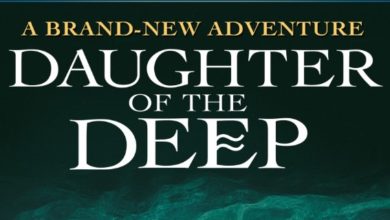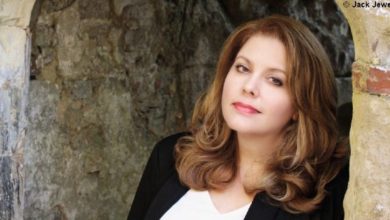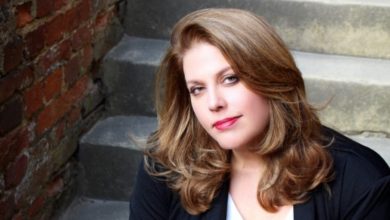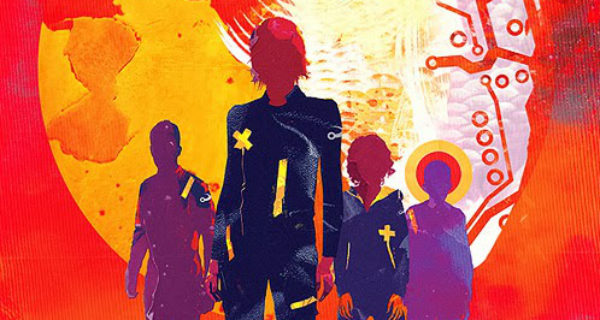
Interview with Sophia McDougall about writing, Mars and everything.
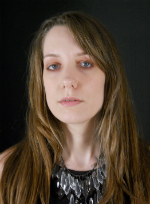 British author Sophia McDougall (1979) has an English degree from Oxford University. She lives in London, and in addition to writing she also teaches and provides mentoring to writers. Her first Trilogy, an alternative history series called “Romanitas”, takes place in a modern world in which the Roman Empire never fell. Her current series, “Mars Evacuees”, includes Mars Evacuees and its sequel Lost in Space. Having read and thoroughly enjoyed her writing, I was curious to speak with the creative mind behind the books. McDougall was gracious enough to agree to do an interview, in which we talked about her work, and in particular, about “Mars Evacuees”.
British author Sophia McDougall (1979) has an English degree from Oxford University. She lives in London, and in addition to writing she also teaches and provides mentoring to writers. Her first Trilogy, an alternative history series called “Romanitas”, takes place in a modern world in which the Roman Empire never fell. Her current series, “Mars Evacuees”, includes Mars Evacuees and its sequel Lost in Space. Having read and thoroughly enjoyed her writing, I was curious to speak with the creative mind behind the books. McDougall was gracious enough to agree to do an interview, in which we talked about her work, and in particular, about “Mars Evacuees”.
Hi, thanks for agreeing to do this interview. I must say, I recently saw the Hebrew edition of “Mars Evacues” and it looks gorgeous!
Yay, thanks! I’ve seen pictures. it looks great!
When did you know that you want to be a writer?
When I was about three! I was very lucky in my parents, my mother read to me constantly and I was dictating stories which she’d write down before I could read myself. There were sometimes other careers I wanted in *addition* to writing but I can’t remember a time where I didn’t want to write.
Okay, so shall we delve right in?
Sure!
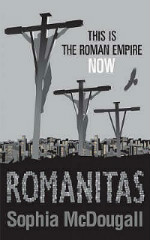 What was your first published story?
What was your first published story?
Romanitas – it’s the first of an alternative history trilogy where the Roman Empire never fell! There may have been a few poems before that, but otherwise I just went straight in with a trilogy at 23 like a lunatic.
How did you prepare yourself to become a writer?
Constant reading, and nearly-constant writing. mainly. I also did an English degree (well, two) but the most important thing was the reading and writing. As I say, all the stories I wrote from when I was a child are “serious” to me. I didn’t see them as practice for something I wanted to do in the future, I wanted to write stories *now* so I did.
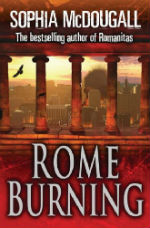 How long did you write before you were published?
How long did you write before you were published?
Well, depends what you mean. My first grown-up novel was published. I didn’t have a drawer full of them. But I had been writing plays and scripts for a few years before that. And I wrote full-length novels (about UNICORNS!) in my early teens, and to me they were all serious.
(Actually the unicorns were mostly pre-teen.)
If you hadn’t become a writer, what would you be or do?
Well, I think I always *would* have been some kind of writer. But I was – and am – interested in other ways to tell stories – and in studying them. I used to want to act or direct. And I wanted to be an academic studying the theatre of the Renaissance for a while.
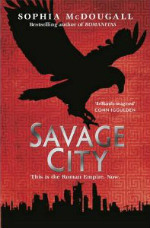 Where did you find the inspiration for this book?
Where did you find the inspiration for this book?
I had the idea when I was nine! I had a big book on the solar system at home and I knew that Mars was the most Earthlike planet and one of the best candidates for humans to colonise. And at school, we were reading “Goodnight Mr Tom” by Michelle Magorian. It’s about an evacuee sent from London to the English countryside during WW2. I was fascinated by this; I’d never heard of evacuees before. And I started thinking “where else could you send people? If nowhere on Earth was far enough?” So I started a very early version of Mars Evacuees right then. I then tried to write a really depressing version of it five years later where they were teenagers and everyone died. Then I left it for a very long time, but I always felt like it was a good idea.
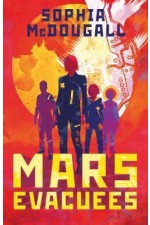 Could you share with us the process of research you did for the book?
Could you share with us the process of research you did for the book?
Do you know Google Earth has a “Mars” setting? I practically lived on that. You can spin it around and zoom in — although never quite as close as I really wanted. And NASA photos were helpful too. And I crowdsourced some questions – people on Twitter were remarkably helpful. I wanted to know how far a 12-year-old could jump on Mars and I had the answer within about ten minutes. (It’s thirty feet.) I decided I’d happily handwave things if the story needed it, but if there *was* a way to get the science right I’d always try to take it. So I learned quite a lot about the physics of the gravity — it’s something that most books/films about Mars leave out, which is strange, because being on a planet gravity is so *weak* would be the most fascinating thing — you’d never forget it for a moment.
Your aliens seem to be very intricately thought out. How did you develop them, and why this way?
Well — first off, they had to be scary. And I decided the scariest thing was something you couldn’t *see*. And I’d had this idea that they were freezing the earth over — so they started off as a bit like ghosts – cold and unknowable. But it was important to me that I never depict a race of aliens who were simply evil, or doing bad things just for pleasure. These had to be *people*. So they’d have to have reasons for what they were doing that made sense to them. And at some point the human child characters would have to learn to *see* them. And I liked the idea that what they’d found out would be a huge contrast with this icy, spooky, ghostlike presence which they’d been terrified of for so long. So when you find out who the Morrors really are, they’re colourful and artistic and emotional. I thought — what if they don’t understand us any more than we understand them? Maybe they think *we’re* the unemotional ones? And I started thinking — maybe they’ve evolved a different way of communicating? Maybe that’s why we’re not getting each other? And then both sides have to overcome that. I didn’t want the process of learning about each other to be easy, on either side – it’s not like it’s all a big misunderstanding; the Morrors really *have* been attacking Earth for years and that fact isn’t going to go away. But they’re a complex society made up of individuals, and they have understandable motives, and that isn’t going away either. All of that sounds very serious – and it is. But I also thought that humans and aliens trying to make sense of each other — what do you eat? What is your family like? What do you call yourself? — could be really funny. There’s a bit where they’re having a sort of picnic and it turns out aliens are really keen on tomato ketchup.
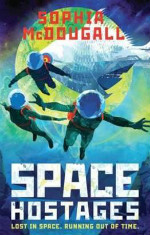 Your book is often compared to Lord of the Flies. What is your opinion, what are your feelings about this comparison?
Your book is often compared to Lord of the Flies. What is your opinion, what are your feelings about this comparison?
Well, there’s a bit that’s sort of” Lord of the Flies” in space, yes. I guess, in Mars Evacuees, that’s not the end of the story, nor is that episode treated as if it sums up human beings. Everyone’s scared and isolated and vulnerable and some existing problems get bigger and more dangerous because of that. And one of the characters can see it coming because she’s already well aware that there are bullies and insecure people among them. But the rest of the book is really about camaraderie and co-operation. I don’t consider the chaos and bullying as somehow *more true* than that.
In Mars Evacuees, Mars kind of represents a fresh start for humanity. Children too have always been traditionally entrusted with a similar role, offering a new chance to fix what their predecessors got wrong. But in your book, neither the red planet nor adolescents live up to their promise. Why is that?
Interesting question! I’m not sure they don’t live up to their promise. I think they do. The first people to make contact with the Morrors and start the difficult work of understanding them are kids, and that does happen on Mars. But, I suppose it’s gradual and messy and there are setbacks! The work of turning Mars into somewhere liveable and beautiful is still going on, but it’s slow and sometimes it’s dangerous. And the humans kids are there to keep them safe from the aliens, but they *are* human, and so perfectly capable of creating a lot of trouble for themselves. But as I was saying before, even when everything goes wrong that isn’t the end.
Instead of standing for “a fresh start”, they repeat the behaviors of the past.
Well, I think it’s a very optimistic book — but I’m not so optimistic I think kids are completely innocent and perfect. There are going to be bullies among them, and in a tense, frightening situation like that it doesn’t take much for things to get out of hand.
From being a new hope, it becomes something more like “survival of the fittest”.
Is this some kind of statement, or is it just how you think they would react.
Perhaps it is a statement that I think it’s how they would react? I was bullied at school. I based quite a lot of what Josephine goes through on things that happened to me. I’m never going to see any large group of people as completely benign.
Mars Evacuees offers a nice variety of strong, able women: Alice Dare and her heroic Mother Stephanie Dare, Josephine, Dr Valerie Muldoon. Is this intentional? Do you think it might appeal more to girls, or worry that it might not appeal as much to boys?
There are two girls, and two boys, and there are strong, heroic men in the book as well. Somehow no one asks me why I wrote them… but yes, it is deliberate. I’m sick of films and books that give me *one* girl in a team of boys who then has to carry all the weight of being The Girl so that she never gets to be just herself. I wish I didn’t think it was an issue. With children, I don’t think it is. I think girls deserve to see more girls and women in their fiction – being *all* the things that humans can be, good and bad, serious and funny and sensible and odd. But I think boys deserve that too, and I think they’re fine with it — unless adults start telling them that maybe they shouldn’t be fine with it. I’ve had great feedback from boys. It’s adults who make it weird. The main cast is perfectly equal. And yet one publisher said “Girls don’t read books about space and boys don’t read books about girls.” But who says they don’t? It’s sad.
A sequel to Mars Evacuees has recently come out. How many books do you think will be in this series?
Just the two.
And what’s the next thing we can expect to read from you?
I’m working on a new novel for adults, but if I told you details about it…
No, we wouldn’t want that to happen! Thank you for the fascinating interview!


